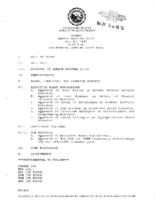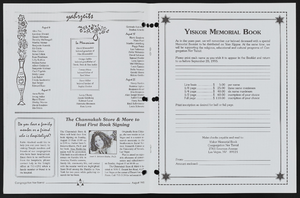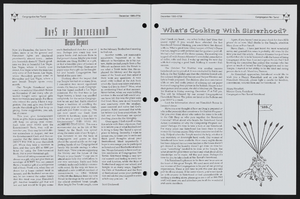Search the Special Collections and Archives Portal
Search Results

Interview with Elsie Lavonne Lewis, November 16, 2004
Date
Archival Collection
Description
Text

Interview with Layton James O'Neill, July 2, 2004
Date
Archival Collection
Description
Text

Interview with Robert Rex Brownlee, August 6, 2007
Date
Archival Collection
Description
Text

Francis Oh Allen-Palenske oral history interview: transcript
Date
Archival Collection
Description
Oral history interview with Francis Oh Allen-Palenske conducted by Stefani Evans on June 30, 2022 for Reflections: the Las Vegas Asian American and Pacific Islander Oral History Project. In this interview, Francis describes her childhood growing up in Lousiana with a white father and Korean mother. She recalls the family relocating to Reno, Nevada in 1983 where Francis obtained her bachelor's degree in political science from the University of Nevada, Reno in 1999. She describes serving as a staffer in Washington, D.C. for Representative Jim Gibbons (R-NV) before moving to Las Vegas, Nevada. She discusses her Korean mother, maternal grandmother, and maternal aunts as strong, smart, business-minded women. Throughout the interview, she discusses Korean traditions, celebrations, clothing, and foods, as well as Korean cosmetics and views about skin color.
Text

Domingo Cambeiro oral history interview: transcript
Date
Archival Collection
Description
Oral history interview with Domingo Cambeiro conducted by Stefani Evans and Claytee D. White on October 18, 2016 for the Building Las Vegas Oral History Project. In this interview, Cambeiro discusses his upbringing in Havana, Cuba. He talks about his initial interests in architecture, starting his own architecture drawing service, and attending the University of Havana. Cambeiro recalls submitting a request to leave Cuba, emigrating to the United States, and arriving in Las Vegas, Nevada in 1962. Cambeiro talks about working with Las Vegas architect Julius Gabriel, obtaining his architecture license, and starting an architectural firm. Lastly, Cambeiro discusses being selected to create architectural drawings for the Thomas & Mack Center.
Text

Meeting minutes for Consolidated Student Senate University of Nevada, Las Vegas, May 30, 1991
Date
Archival Collection
Description
Text




